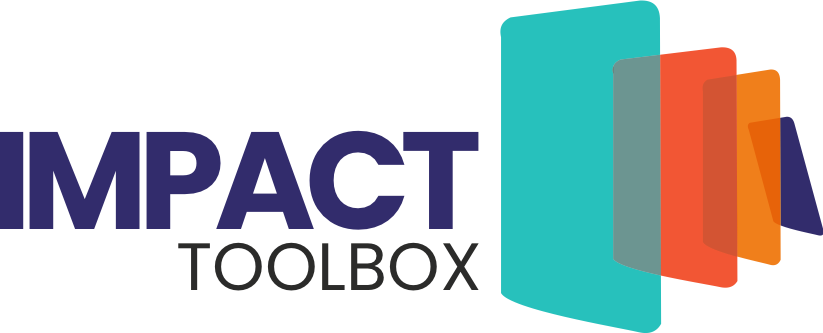Currently Empty: $0.00
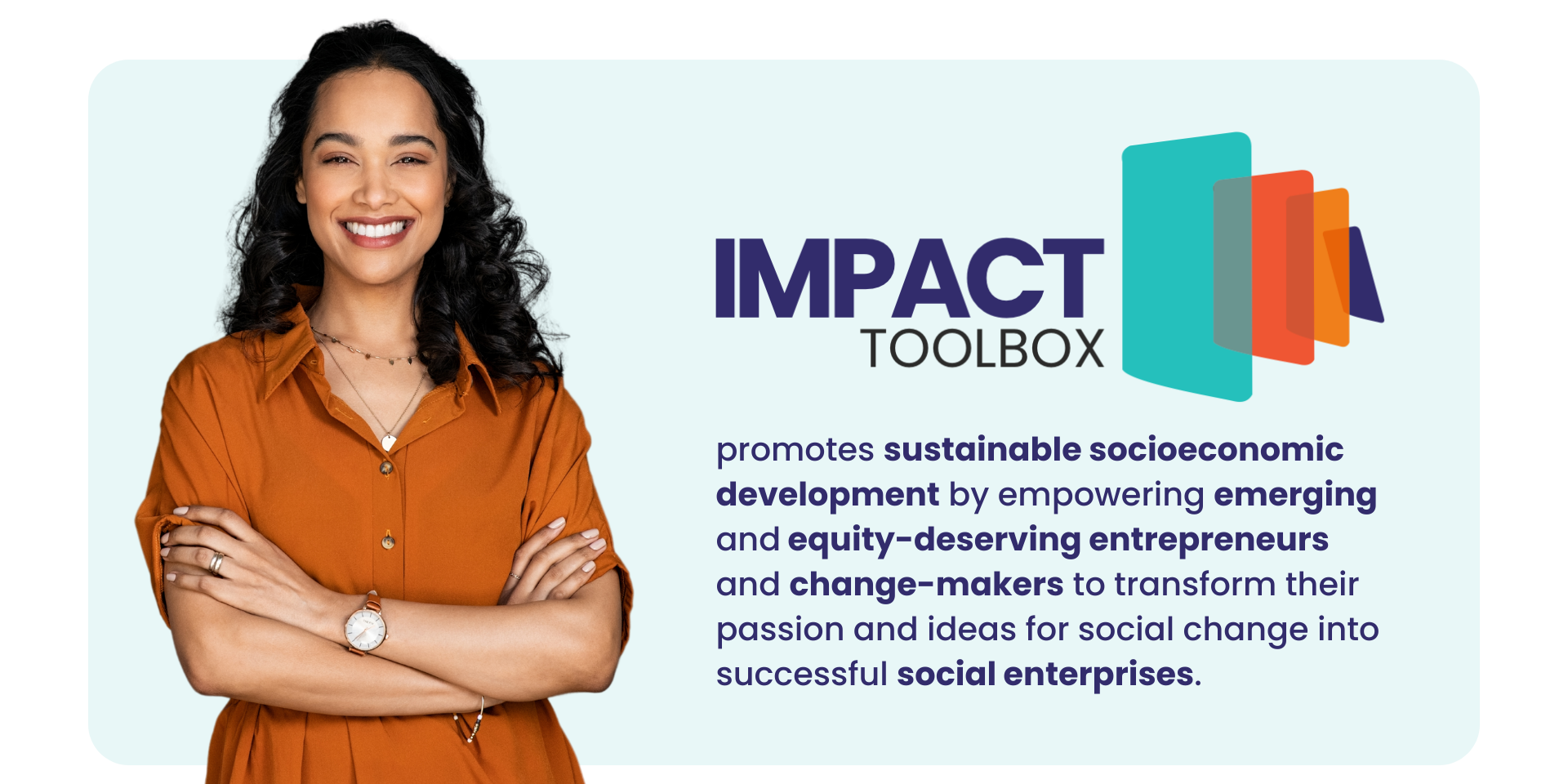
Social enterprises have tremendous potential to drive socio-economic progress. In Canada for example, a 2022 survey by Buy Social Canada shows that these enterprises generated a staggering $237 million in revenue, with $185 million coming from sales.
Social enterprises also employed over 9,000 individuals and paid $141.3 million in wages. This underscores the transformative power of social enterprises in driving economic development.
Social enterprises also employed over 9,000 individuals and paid $141.3 million in wages. This underscores the transformative power of social enterprises in driving economic development.
However, research, including further insights from Buy Social Canada and Start-Up Canada’s 2020 ESDC Social Impact Report, indicates that many aspiring social entrepreneurs face hurdles such as insufficient business capacity, funding challenges, and a lack of mentorship and strategic planning.

What we do
Impact Toolbox provides a platform for social entrepreneurship training and support for social enterprise development. Regardless of your background and location, you can gain the knowledge, acquire skills, and access tools needed to develop and manage revenue-generating social purpose organizations. These organizations have the potential to create employment opportunities and address critical socioeconomic issues in their communities.
How we do it

Mindset Change: We help adopt a regenerative culture of money and a mindset focused on generating income to enable deeper and broader social and environmental impacts.
Skillset Development: Participants gain in-demand skills in social entrepreneurship, including impact management, measurement, and business modelling.
Toolset Access: We provide lifetime access to essential tools such as the problem validation rubric, program contribution matrix, theory of change canvas, measurement framework, competitive stack map, and brand guidelines.
Our theory of change
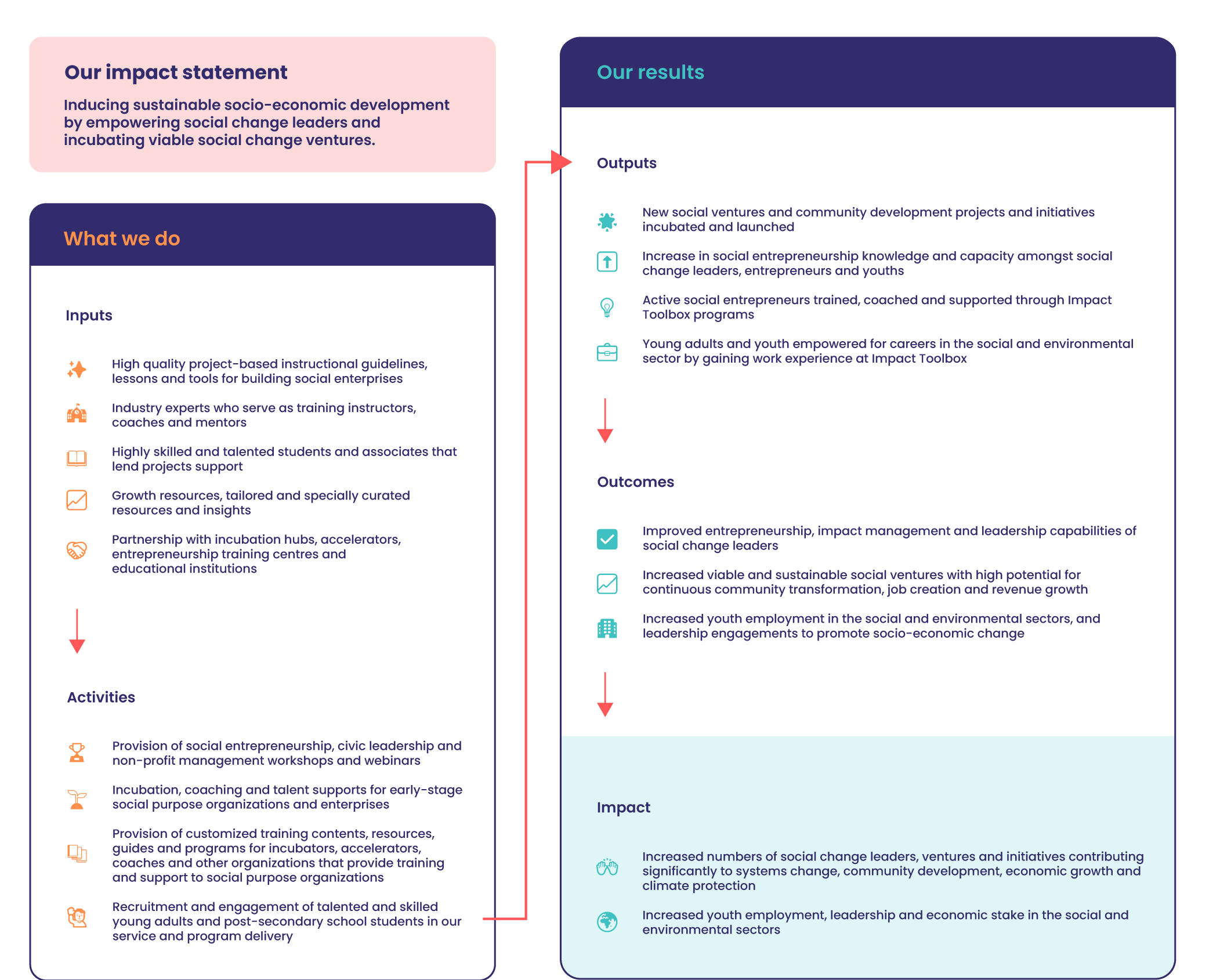
Our alignment with the United Nation’s 2030 Agenda and our aspirations
Our commitment to the United Nations’ 2030 Agenda is deeply embedded in our work at Impact Toolbox.
We make a direct contribution to the achievement of Goal 4, specifically targets 4.3 (ensuring equal access to affordable and quality technical, vocational, and tertiary education), 4.4 (increasing the number of people with relevant skills for financial success), and 4.7 (ensuring all learners acquire knowledge and skills needed to promote sustainable development).
Additionally, our efforts indirectly support goals 1 (No Poverty), 2 (Zero Hunger), 3 (Good Health and Well-being), 10 (Reduced Inequalities), 13 (Climate Action), and particularly goal 8 (Decent Work and Economic Growth).
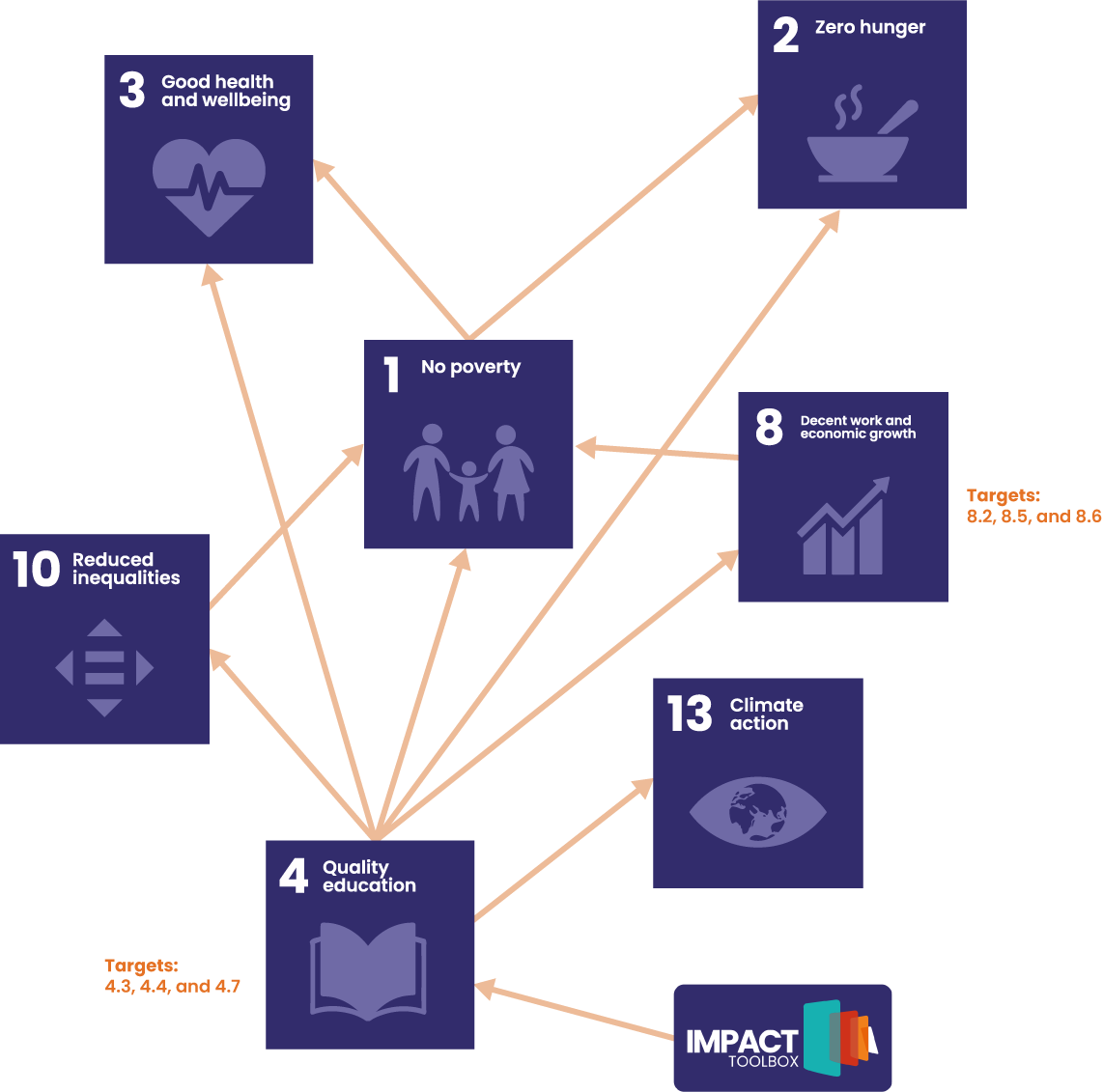
By 2030, we aspire to:
- Train 10,000 people with the skills for sustainable social change through leadership and entrepreneurship training.
- Help start 500 social enterprises to address community issues, create jobs, and generate revenue.
- Engage 200 post-secondary students and new graduates in carrying out our activities, providing them with work experience and leadership and social entrepreneurship skills.
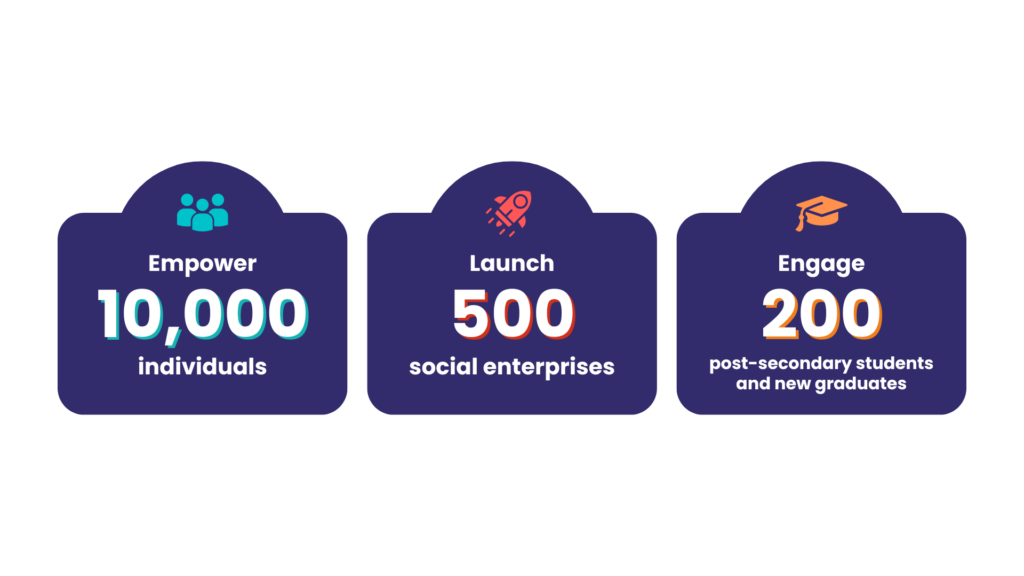
How do we measure impact?
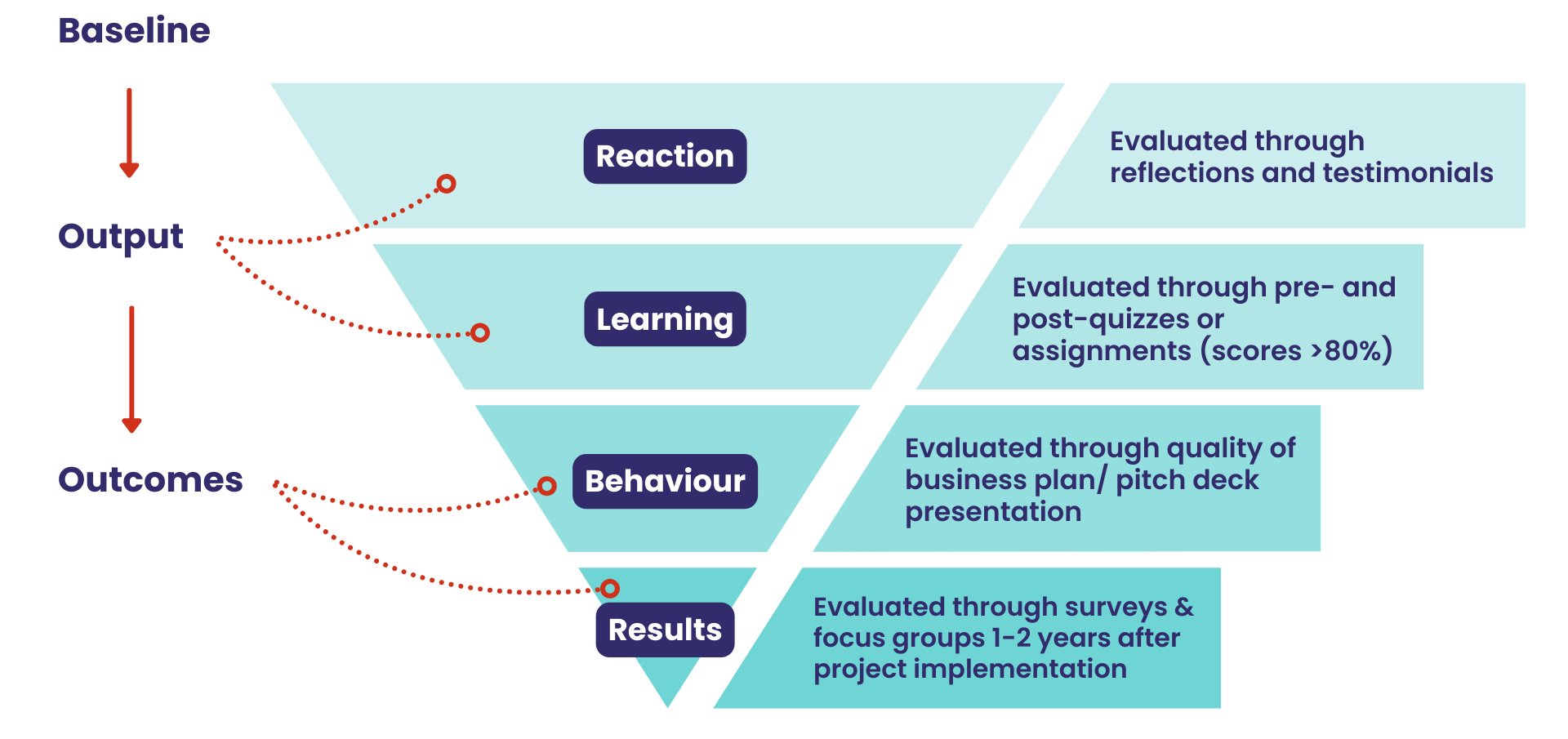
We evaluate the effectiveness of our programs using Donald Kirkpatrick’s four levels of evaluation: reaction, learning, behavior, and results. Reactions will be evaluated through reflections and testimonials, learning through pre and post-quizzes, with success being post-quiz scores >80%, and behaviour change through the quality of social enterprise business plan presentations at our demo days (Where participants presents or shocase their ideas).
Baseline: Before the program, participants’ level of exposure to core training topics, current state of ideas, challenges previously faced, and program expectations will be recorded through an online baseline survey and a pre-assessment test embedded in the application form and course platform. This data will be collected and compared with post-assessments to measure growth and determine the effectiveness of our programs.
Output: During our capacity development program, reactions and learning are assessed through daily reflections in workshop sessions, an online immediate post-evaluation survey, and a pitch presentation on demo day. Reactions will assess participants’ experience in the program and measure the participants’ satisfaction with the training sessions. Learning occurs when one or more of the following has occurred: attitudes are changed, knowledge is increased, and/or skills improved.
Outcomes: The initial implementation of participants’ actions and project plans will take place after the completion of the program. 6 to 12 months after implementation, we will conduct a behaviour evaluation to assess the extent to which participants apply their learning from the program and the change in their behaviour. This will be conducted via a series of online surveys to ensure convenience.
Finally, we collect results from participants 1 to 2 years after they have implemented their action or project plans. Here, we seek to understand how participants have internalized and adopted the approaches thought and whether they have launched and continue to implement their community development initiatives. Factors indicating resilience and economic contribution include the number of other youths or community members engaged, profit, or financial savings. This will be conducted through an online survey.
Outcomes will be continuously evaluated by the number of beneficiaries, communities reached, jobs created, and revenue generated by the non-profit or their social enterprises.
How do we fund these efforts?
Impact Toolbox is a Canadian national charity that strives to be a financially sustainable mission-first organization by monetizing some mission-oriented activities to generate revenue to sustain our core programs, which we provide at no cost. 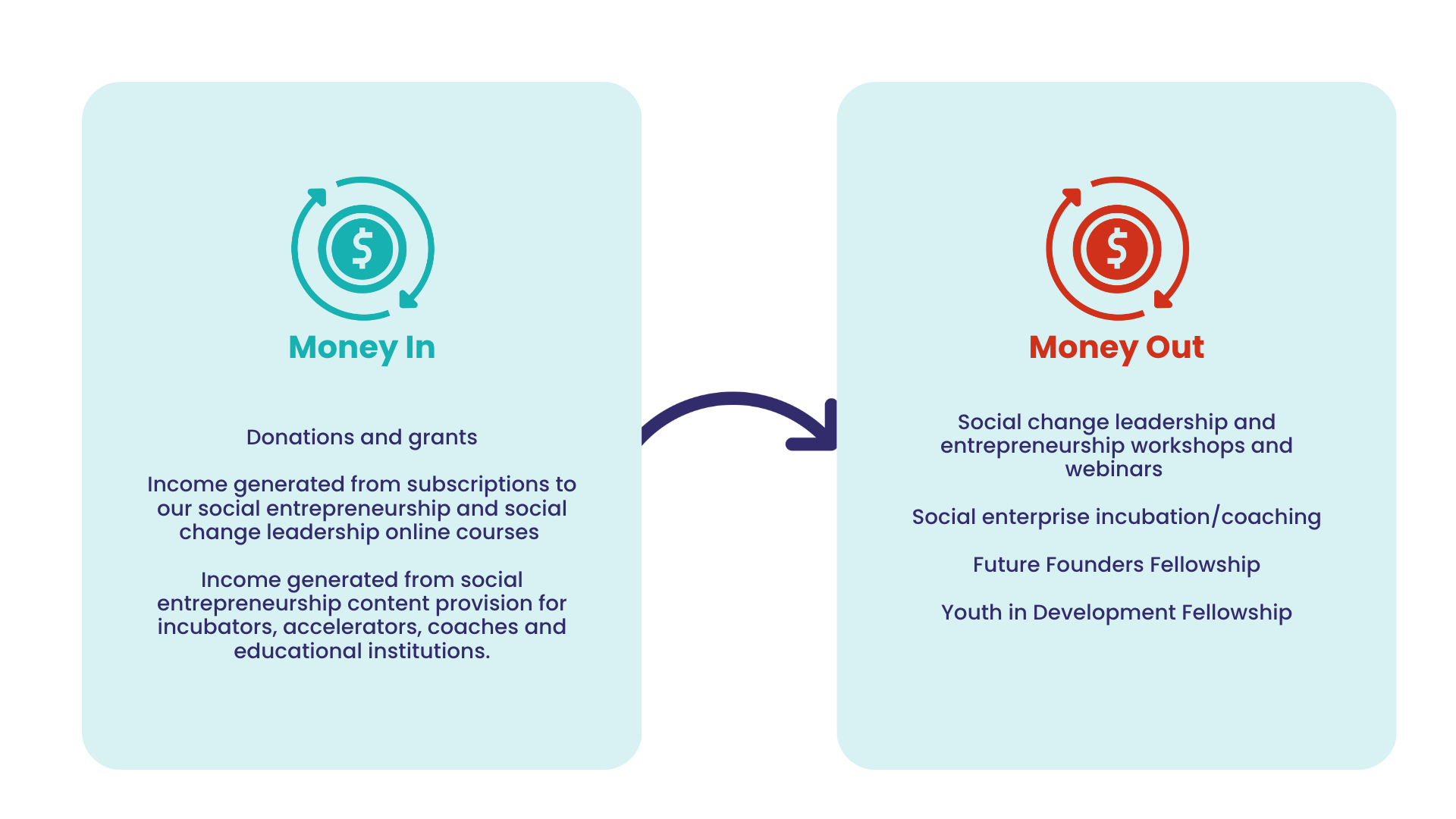
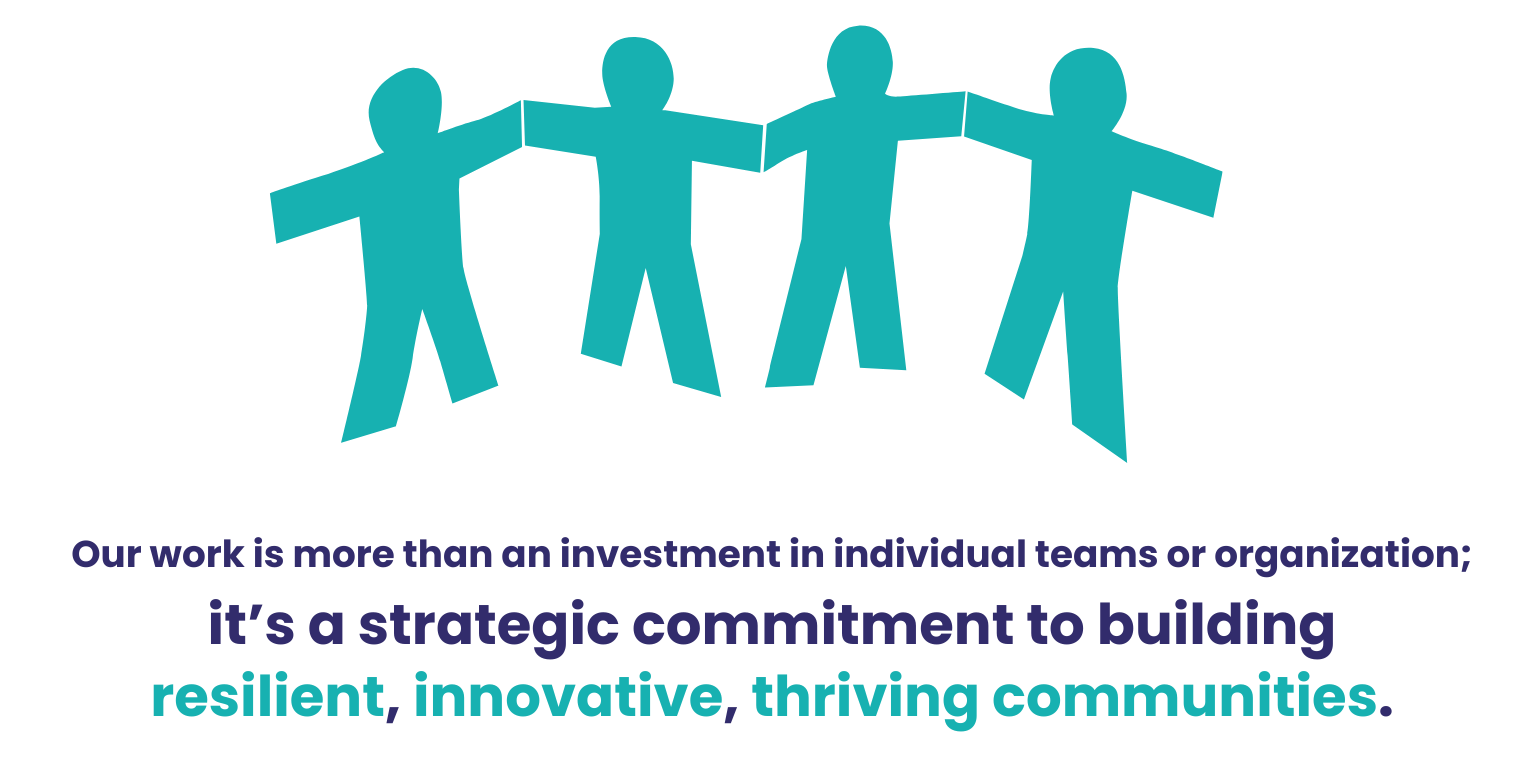
What we are seeing in communities where we work
Impact Toolbox’s approach yields transformative benefits for communities by promoting social entrepreneurship and youth leadership. Key outputs include the launch of innovative social ventures and enhancing social entrepreneurship knowledge among young leaders. The outcomes are robust: improved entrepreneurial and leadership capabilities, establishing of sustainable social enterprises with high-impact potential, and increased youth employment in pivotal sectors.
The overarching impact of our initiative is profound. We catalyze systemic change, drive community development, stimulate economic growth, and champion climate protection. Crucially, we empower youth to assume significant roles and leadership in shaping their communities’ socio-economic and environmental futures. This project is more than an investment in individual ventures; it’s a strategic commitment to building resilient, innovative, thriving communities.
